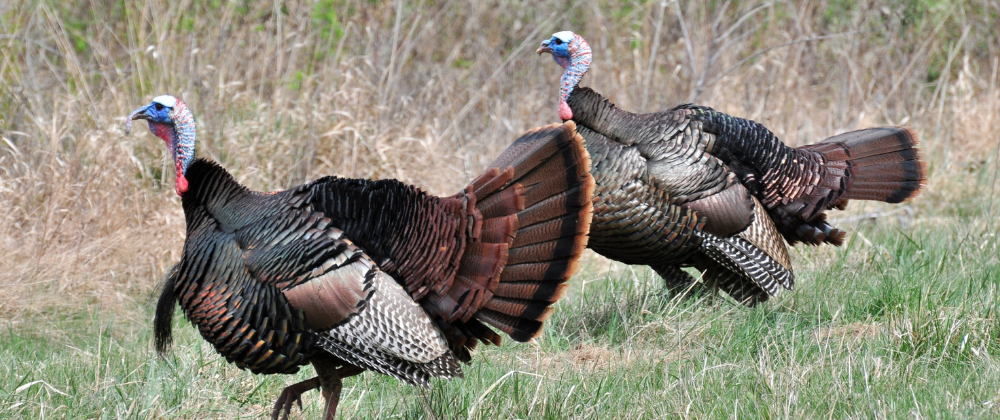Happy Thanksgiving!
As people sit down for Thanksgiving dinner many will say how much they are thankful for the food on their table. For most people, the center point of the meal will be a plump turkey that was bought at the local market. These farmed, domesticated turkeys are vastly different from the wild turkeys people see wandering through their yards. Surprisingly, those wild turkeys are actually acting as natural pest controllers on a daily basis.

Turkeys are omnivores and hardly discriminate on what they will consume on a daily basis. Small insects, frogs, lizards, tree nuts, plants, turkeys will seemingly eat almost anything.
As turkeys meander through properties, many people do not realize some of the insects that they are consuming are ticks. This includes deer ticks that may be infected with Lyme disease. Since turkeys eat so many other things as well, they are not necessarily in search of ticks as the main staple of their diet. However, every little bit of tick control that nature can help contribute is always welcomed. The Pennsylvania Game Commission has reported that turkeys can eat up to 200 ticks in a day!
Unfortunately, we can not solely rely on turkeys to devour our tick populations. For effective tick control on a property it is recommended to do perimeter and property treatments with all-natural products that will kill ticks and also repel them from the property. Beyond property sprays there are some easy cultural practices that homeowners can implement on their own to help keep ticks away. See our blog post Tick Prevention: Tips For Reducing Tick Habitats In Your Yard for more tips.
As always, if you are on your property during the holidays, perform tick checks after coming inside. Many adult deer ticks are still in search of a final blood meal to survive the winter months.
We wish you a happy and safe Thanksgiving!

